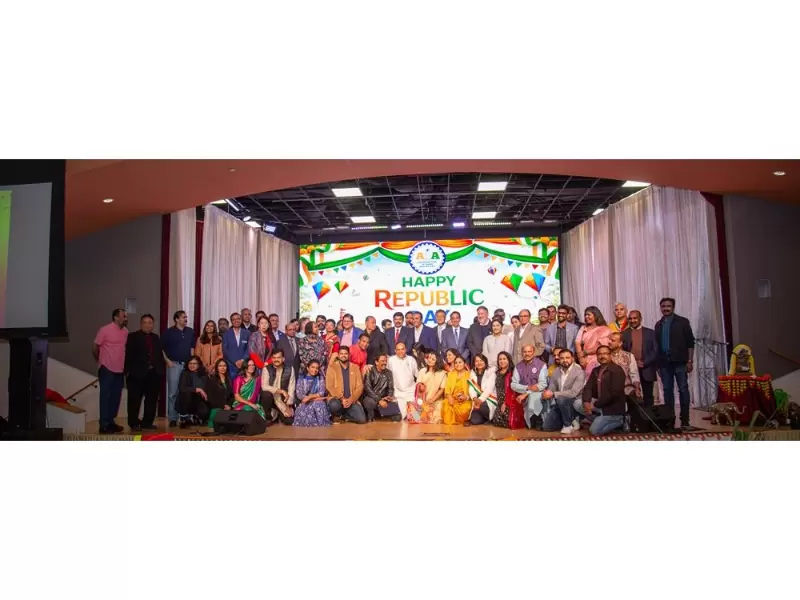HinduPACT rejects transnational repression narrative against India as “dangerous fabrication”
The organization states that these claims have harmed Hindu diaspora communities by fuelling suspicion, hate crimes, and political marginalization.
.jpg) HinduPACT /
HinduPACT /
US-based Hindu advocacy group HinduPACT on Aug. 19 rejected the narrative of transnational repression against India, calling it a “dangerous fabrication.”
A report, published by American Hindus Against Defamation (AHAD), an initiative of HinduPACT, argued that claims portraying India as carrying out organized repression abroad are unfounded and misrepresent the country’s democratic framework. It cautions that the spread of these claims has harmed Hindu diaspora communities by fueling suspicion, hate crimes, and political marginalization.
Also Read: Hindus in US, UK urge UN to address 'Islamist terrorism'
“Our report unequivocally demonstrates that the transnational repression (TNR) narrative against India is a dangerous fabrication, unsupported by verifiable evidence and driven by ideologically motivated groups,” said Ajay Shah, executive chair of HinduPACT. “To equate India, the world’s largest constitutional democracy, with robust judicial oversight, to authoritarian regimes notorious for extrajudicial actions, is not only analytically flawed but serves to undermine global democratic values.”
HinduPACT initiative @AHADHindu releases a landmark research report, "Tarnishing India, Targeting Hindus - The Weaponization of Transnational Repression Narrative" #TNRhttps://t.co/z5qYOMSBdq@StateDept @TLHumanRights Reject CA #SB509 pic.twitter.com/Txy1hRJIj0
— HinduPACT (@HinduPACT) August 18, 2025
Contrasting India’s record with countries such as China, Russia, Iran, and Turkey, the report said India’s overseas measures are “legally authorized, procedurally proper, and fundamentally misrepresented” when labeled as repression. It emphasized that constitutional safeguards, administrative protocols, and judicial oversight guide India’s counter-extremism framework.
“The weaponization of this TNR narrative has had a profound and chilling impact on Indian and Hindu diaspora communities worldwide,” said Deepa Karthik, general secretary of HinduPACT. “It fosters suspicion, fuels hate crimes and threatens to break our deep cultural and civilizational ties with our homeland.”
The report cited incidents such as vandalism of Hindu temples in the US defaced with Khalistani slogans as evidence of diaspora communities facing backlash linked to the TNR narrative.
It also pointed to political measures such as California’s SB-509 bill, which HinduPACT has opposed. “SB-509, as written, functions like a Trojan Horse,” said Deepti Mahajan, president of HinduPACT. “Under the guise of community protection, it risks enabling profiling and discrimination against American Hindus, casting suspicion over our cultural and civic activities. It threatens to silence our voices in public life and discourage participation in the democratic processes that strengthen California.”
The report further stated that the TNR narrative has been “propagated by a coalition of ideologically motivated NGOs, advocacy networks, and certain state actors,” identifying groups such as the Indian American Muslim Council (IAMC), Hindus for Human Rights (HfHR), Sikh Coalition, and SALDEF. According to the report, these organizations seek to weaken India’s global standing and erode cultural ties between the Hindu diaspora and their homeland.
HinduPACT urged policymakers to adopt evidence-based approaches in evaluating TNR claims, avoid selective oversight, and ensure transparency in funding for TNR-related advocacy campaigns.
Concluding its findings, the report said the TNR narrative is the outcome of “coordinated advocacy, ideological bias, and geopolitical strategy, rather than evidence,” warning that its continued propagation “threatens to undermine civil liberties, disrupt diaspora engagement, and erode the rights and cultural identity of Indian and Hindu communities abroad.”
ADVERTISEMENT
ADVERTISEMENT
E Paper
Video




 Malvika Choudhary
Malvika Choudhary













Comments
Start the conversation
Become a member of New India Abroad to start commenting.
Sign Up Now
Already have an account? Login